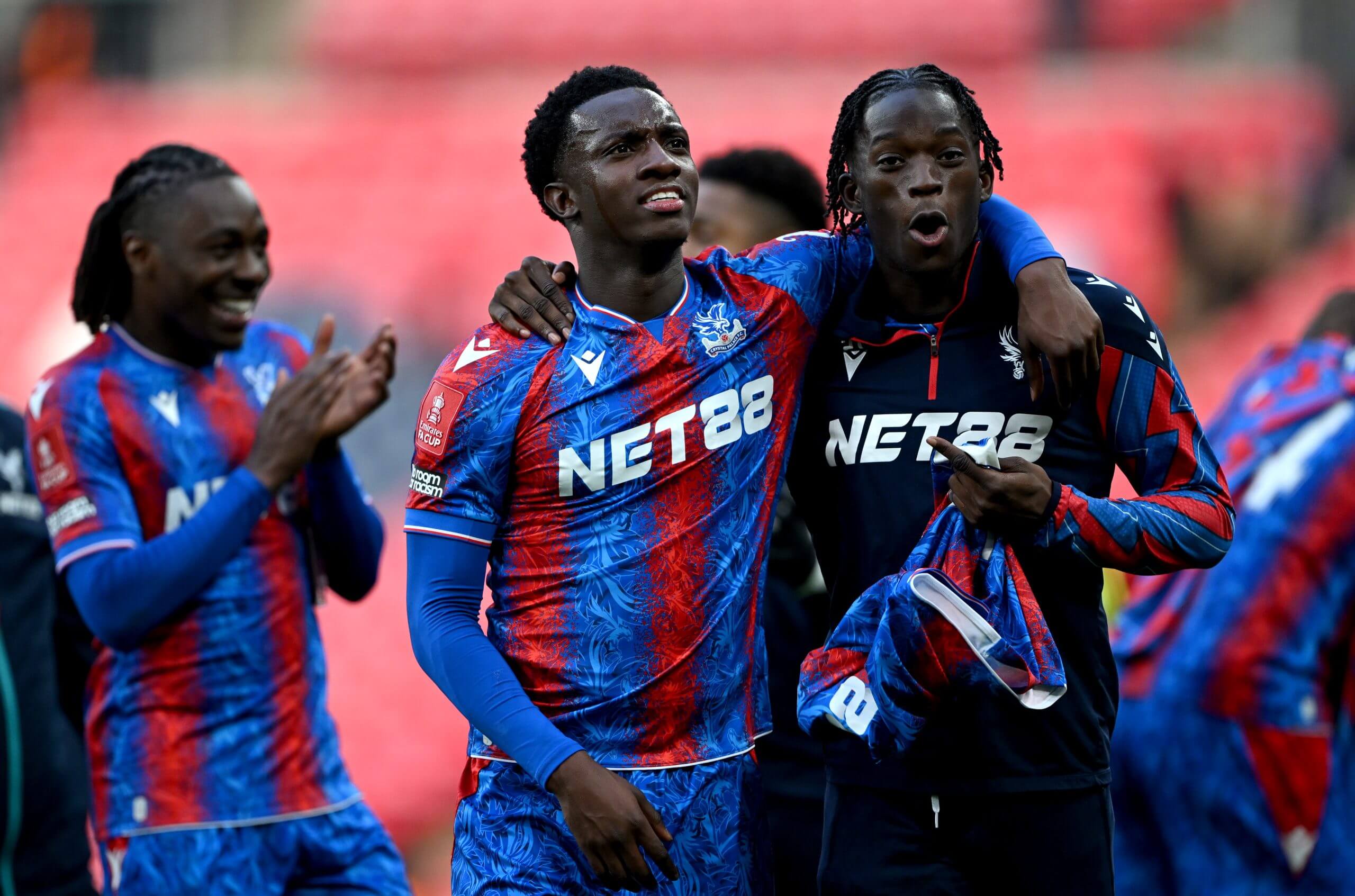
Oliver Glasner openly acknowledges he is not instinctively a patient man, but the Crystal Palace manager has been more forgiving than most of those players who have taken time to find their feet at the south London club.
For Daichi Kamada, that might in part be born of familiarity from their time together at Eintracht Frankfurt. Yet Glasner had no prior connection with Ismaila Sarr nor Eddie Nketiah and all three, at certain points and to different extents, have found life taxing at Palace since arriving last summer.
Advertisement
Kamada, a high earner after his free transfer from Lazio, has only made a sporadic impact this season, operating mostly off the substitutes’ bench, before gradually delivering a more meaningful contribution over the past month or so. He came with a strong reputation; expectations were high.
The story is similar for Nketiah, who joined from Arsenal for £25million ($33.5m) with the associated pressure to justify that fee. Except he has the misfortune to be behind the undroppable Jean-Philippe Mateta. When opportunities have arisen, they have at best only been grasped fleetingly. He might well point to a need for more minutes to showcase his true capabilities.
But, like Kamada, there has been improvement of late.
His pressing to win the ball from Youri Tielemans to set up Sarr for the third goal in Palace’s 3-0 FA Cup semi-final victory over Aston Villa on Saturday was a prime example. There is mitigation too, in that he has flitted between a No 9 and a No 10, while Kamada has played as both a No 6 and a No 10, finding more joy in the deeper position.

Nketiah (centre) celebrates at Wembley with Romain Esse (Shaun Botterill/Getty Images)
Sarr’s journey is unlike those two but, given his success overall, it is easy to forget that he struggled to make an impact early on in the season, featuring primarily as a substitute. The 27-year-old’s only start in that period was in a 1-0 home defeat against Liverpool. His lack of minutes was not conducive to working out how to thrive in a new role.
He arrived after an underwhelming season in Ligue 1 with Marseille, having spent two of his four seasons at Watford experiencing relegation from the Premier League. Not only that but he had never previously played as a No 10.
Glasner has since been impressed by his adaptation to the role after Palace recovered from that slow start of eight games without a win. The Senegalese’s directness and precision have since become a key part of Palace’s play, as has his on-field relationship with Daniel Munoz down the right as the pair have learned each other’s game.
Advertisement
In the first half of the season, the pair completed 85 passes between them. Since then (across another 21 games), that number has swelled to 186.
The below passing network from the 2-0 win at Leicester City in January, where he and Munoz made 16 passes to each other, highlights Sarr’s stronger links in that No 10 role.
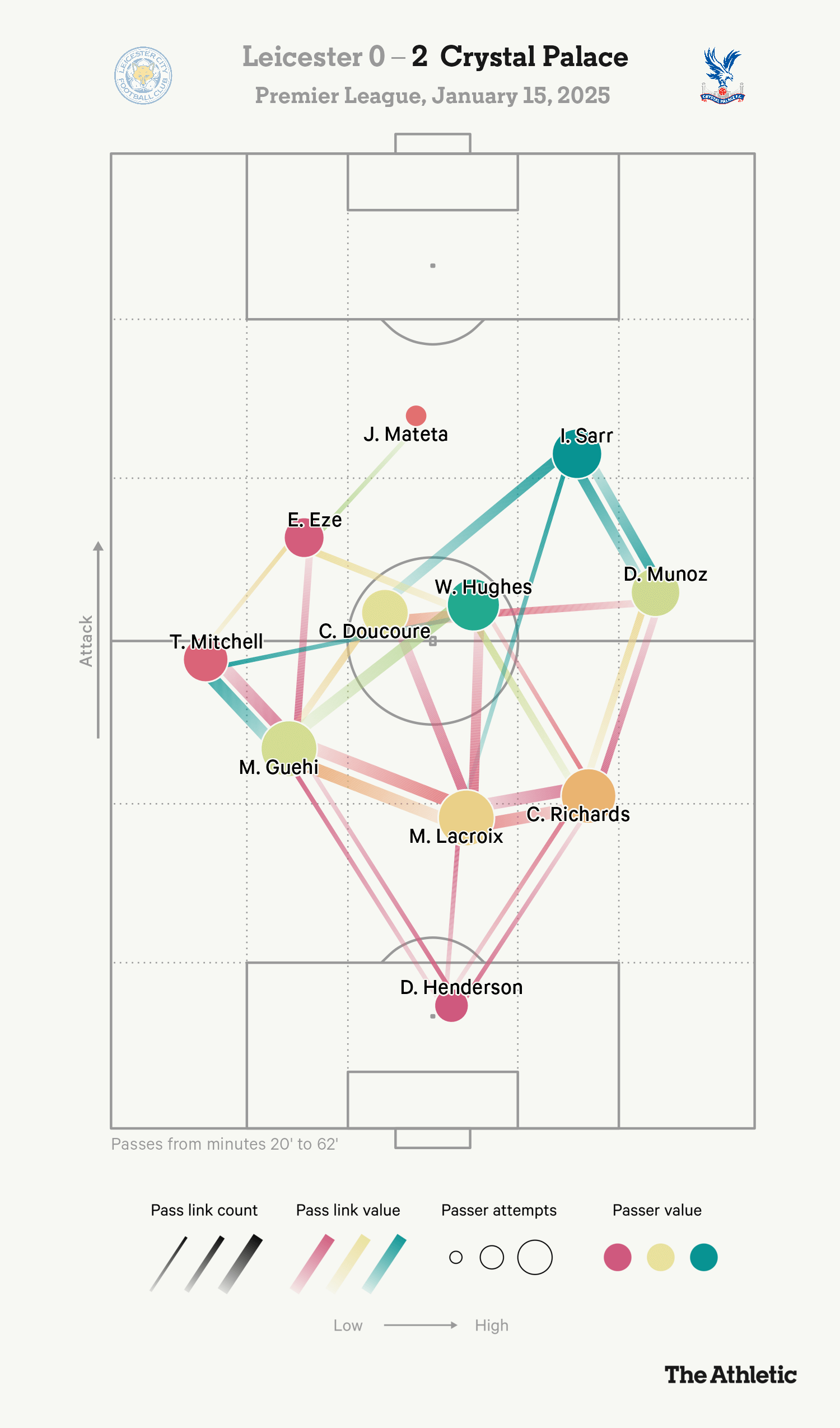
So, while there was grumbling frustration at times that three high-profile signings had not made a more explosive impact at their new club, some leeway should be given when judging players’ immediate performances. Growing accustomed to new surroundings, team-mates and everything that comes with joining a new team can mean it takes longer than might be optimal to settle.
Critics of Nketiah and Kamada could do worse than look towards Mateta.
The Frenchman struggled to make a true, lasting impact in his first two seasons with Palace. After joining from Mainz in January 2021, Mateta started only 24 Premier League games until mid-December 2023 — he began only six top-flight games and played 754 minutes over the whole 2022-23 campaign — and only really established himself in the starting lineup after Odsonne Edouard suffered an injury.
Over the last 16 months, his form has been outstanding, having gained familiarity and confidence.
There are other examples from the club’s recent history, too. Andrew Johnson, signed from Birmingham City in a deal which saw Clinton Morrison go the other way in 2002, found it difficult in his first season. Although his tally of 11 league goals from 28 Championship games might appear impressive, eight were scored in four successive matches.
The following year, he scored 27 in 42 before thriving in the Premier League after promotion in 2004.
Glenn Murray and Mile Jedinak, two of Palace’s key players in their promotion-winning side of 2012-13, also endured tough starts before emerging as the heartbeat of the team a year later. The fans “probably thought I was crap”, Jedinak told The Athletic of his first season in 2011-12 following a move from Turkish club Genclerbirligi.
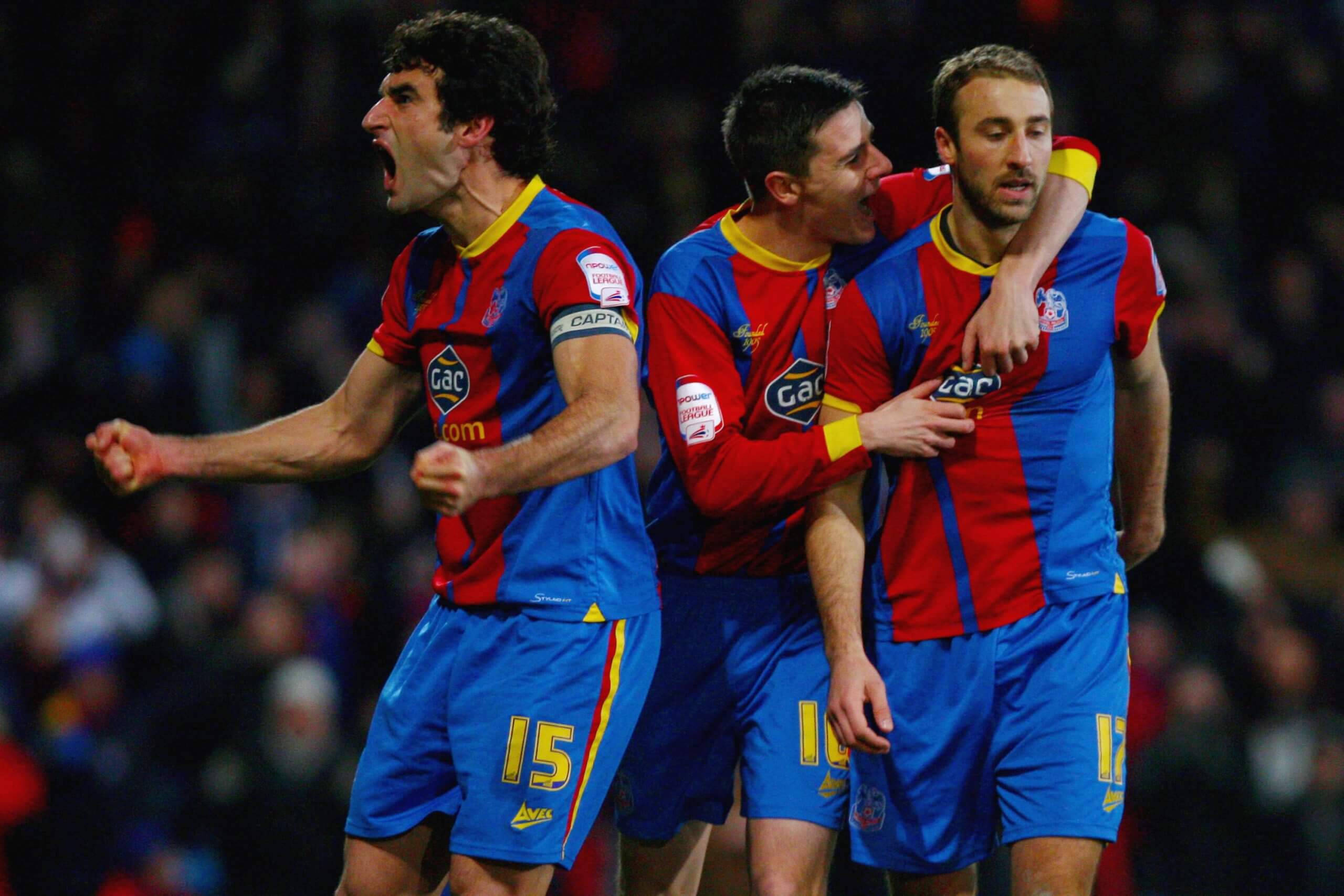
Jedinak, Owen Garvan and Murray celebrate the striker scoring against Brighton in December 2012 (Dan Istitene/Getty Images)
Murray says it took time for him to settle after joining from Brighton of League One that same summer. He scored six goals in the second tier in his first season, and only one in his last 19 league games of the term. “I was aiming to prove myself at Championship level,” he tells The Athletic. “It did without a doubt (take time to adapt). But the people around me got better as well.
Advertisement
“In the second year (then manager) Dougie Freedman put together a group of players who trusted each other, held each other accountable and suited playing with one another. Wilfried Zaha and Yannick Bolasie’s development was incredible in a year and, all of a sudden, we became a team.”
While that Palace side only clicked in their second campaign together, Glasner’s team have adapted far more quickly. That may be aided by his decision not to rotate his players and to pursue consistent selections wherever possible, but the familiarity and trust have become apparent as the season has moved towards its conclusion.
“It was different, especially in the cut and thrust of the Championship, which is quite busy and makes you realise how much you have to be prepared,” Jedinak said. “I didn’t have much of a pre-season but they managed my playing time OK and allowed me time to adapt.”
His target had been “to get settled in as quickly as possible, then hopefully once it all settles down I’ll let my football do the talking. That probably didn’t start happening until the second year, but I was grateful for the experience in the first year because it allowed you to see how things were getting done, experience the Championship and the demands of everything — how players react to certain things and people have opinions on things you don’t think are important but may be important.
“It was the intricate things I didn’t experience in Turkey or when I was younger. When you put in the cut and thrust every week, you feel it and understand it. It takes the experience of adapting and putting your body through what it needs to go through in order to make those decisions going forward.”
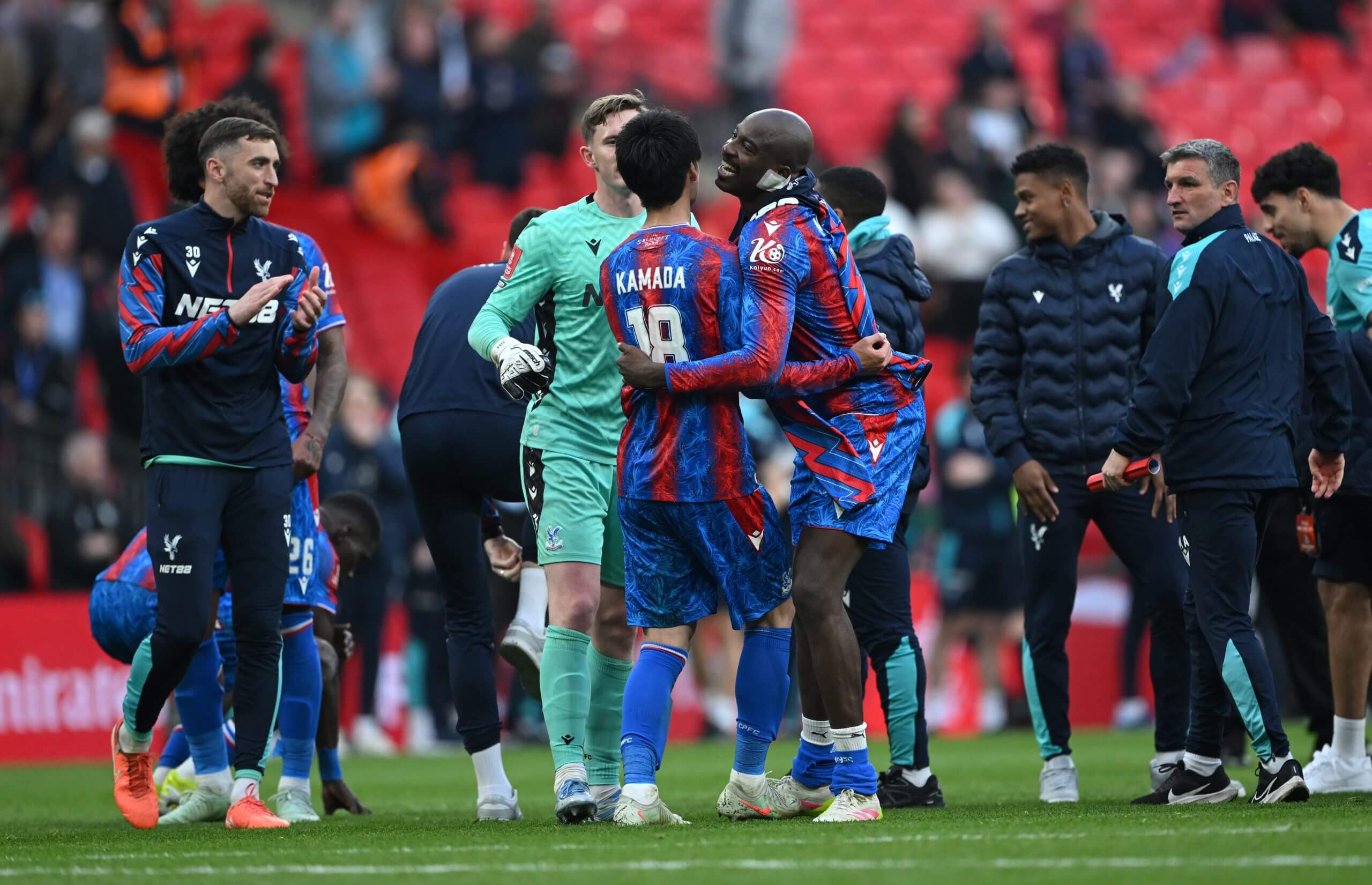
Kamada is hugged post-match by Mateta at Wembley (Shaun Botterill/Getty Images)
While that was Jedinak’s first experience of football in England, English was his first language — unlike Kamada.
The Japan international has had a challenging few years. He had adapted to life in Germany with Frankfurt and thrived, only to find it difficult to settle in Serie A at Lazio. So to come to the Premier League and require another period of adjustment, albeit under a manager with whom he was familiar, was never likely to be a seamless transition.
Advertisement
There is also the consideration that fans and team-mates have to adapt to him as much as he does to them. That part may be lost in the discussion.
Different players have different personality traits. Kamada, flung into a new environment, has given the impression of being somewhat separate from his new team-mates at times; almost aloof. Yet by the end of the semi-final win, he had a smile on his face and was immersed in the side’s celebrations, his demeanour more relaxed than it has been throughout the season.
“Sometimes there are things which weigh players down when they’ve been at other teams,” says Murray. “For Kamada, it would have been a huge change to come to a country with a different language, culture, and into another major city. All those things that we don’t give enough onus to. It’s so difficult.
“When a player is happy off the field, they are generally happy on it. Sometimes it takes time to find your feet in a new area with new people. Now you see those relationships forming, both for the new players and the existing players.
“It isn’t instant. When you’re trying to communicate with a player who doesn’t speak great English and, in the heat of the moment of a Premier League game, you’re screaming instructions and he’s not understanding them immediately, the pace is so quick… You might be telling them to track a run on left or right and he doesn’t have the understanding. That millisecond makes such a difference. By the time you’ve worked it out, it’s too late.
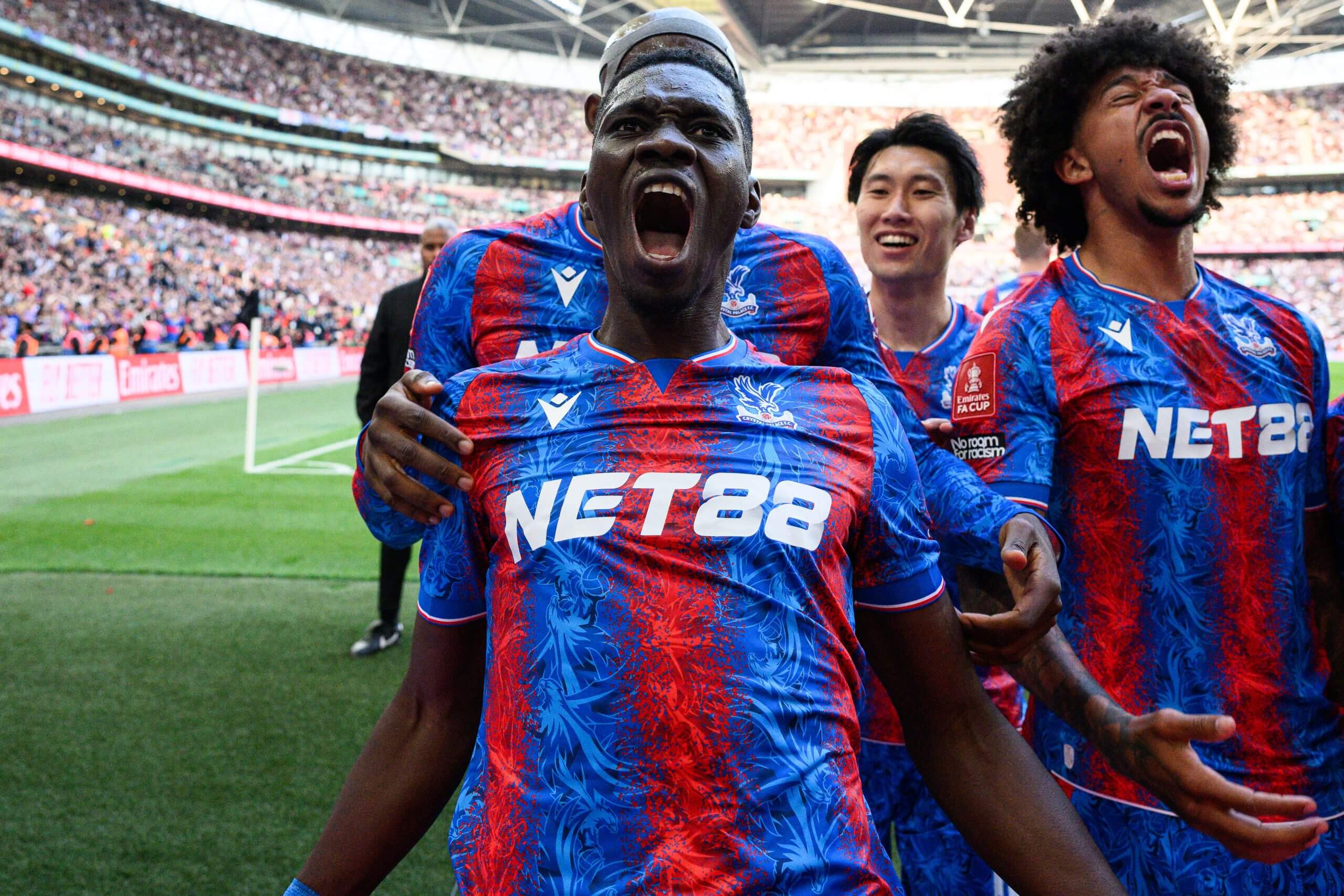
Sarr approaches the Palace fans with a smiling Kamada joining the group (Sebastian Frej/MB Media/Getty Images)
“It’s the same understanding team tactics. If you’re not grasping the real intention, then you’re on the back foot immediately. You can fully understand why it might have taken him more time to settle.
“Sometimes we don’t acknowledge how different and how intense the Premier League is week in, week out compared to other European leagues. The Bundesliga is very physical but without the intensity and quickness of the Premier League from top to bottom, regardless of who you play. It takes time to get used to that not only on a matchday but also in training.”
Advertisement
Add into the mix that Palace signed four players — including Nketiah — on deadline day and many of their internationals did not return until deep into pre-season and no wonder theirs was not an instant adaptation.
All three of them are now making important contributions. There is still work for Kamada and Nketiah to do to fully prove themselves, but perhaps that will come with more consistent game time. Regardless, Palace will be delighted by their recent involvements.
Competition for places is a positive thing. Not all players can be a success, even with time, but it is easy to lose sight of external factors which can affect performances. And some of the most important players in Palace’s history have been slow starters.
That is reason enough to afford the current crop the time they deserve before reaching fully informed judgments.
(Top photo: Sebastian Frej/MB Media/Getty Images)
This news was originally published on this post .






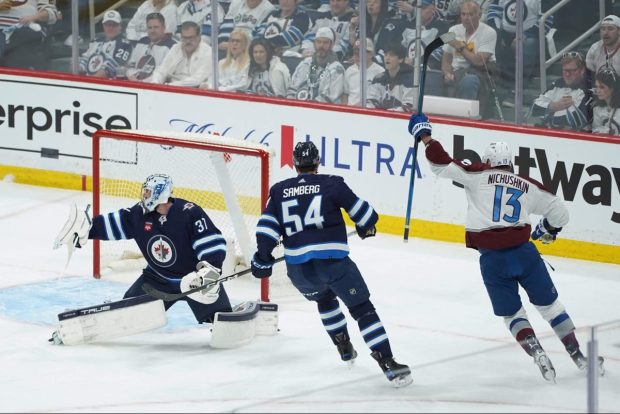
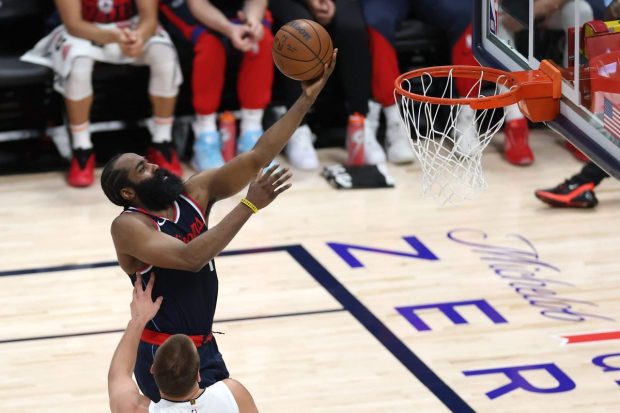
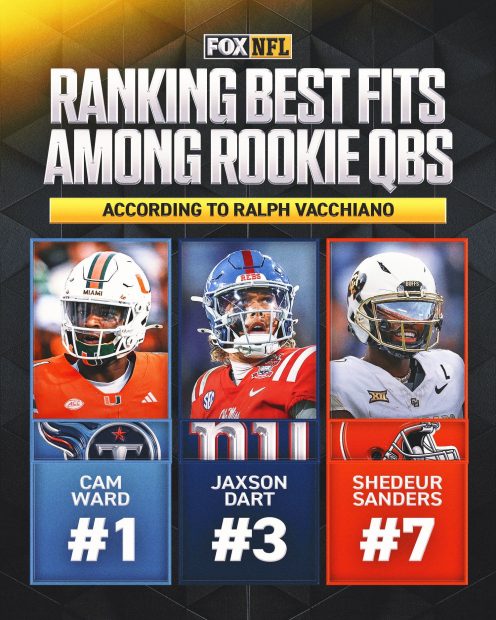
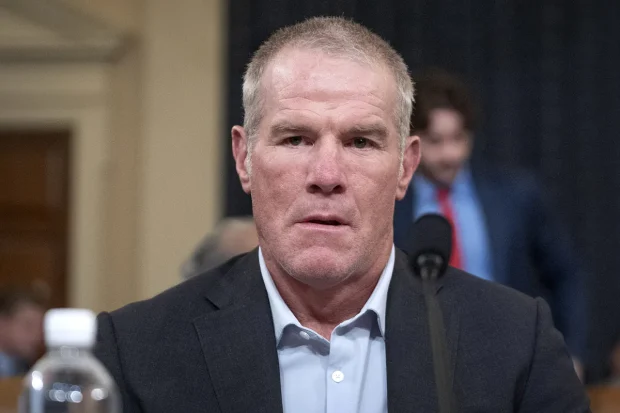
Be the first to leave a comment